Maithreyi Karnoor writes in English and translates from Kannada. She has won the Kuvempu Bhasha Bharati prize for translation and was shortlist for the Lucien Stryk Asian Translation Prize. She is a two-time finalist of the Montreal International Poetry Prize, and her poems are published in Poetry Review, PN Review, Poetry Wales, amongst others. She is the recipient of the 2022 Charles Wallace India Trust Fellowship for creative writing and translation at Literature Across Frontiers, University of Wales Trinity Saint David. Her novel Sylvia is published in India and the UK.
In this interview, she shares her thoughts on writing and translation with publisher Neeta Gupta. Neeta Gupta has been working towards creating publishing connectivities across different languages and cultures for over two decades. She is the co-Founder of the Publishers’ Exchange, a group of Indian Language Publishers formed during the Pandemic to facilitate a sharing of ideas and resources; and Executive Member, Ashoka Centre for Translation. She is also the chief editor of Anuvad, the Bhartiya Anuvad Parishad’s quarterly journal on translation. She was formerly the publisher at Yatra Books and is now the Publishing Director at Tethys Books. Neeta Gupta has edited a volume of essays on translating from and into Indian languages, titled, Translating Bharat, Reading India.
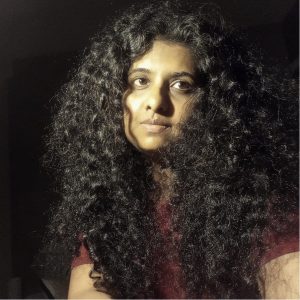
Let’s start with a question about all your literary lives—as a poet, translator, writer—and which hat is your favourite one to wear?
I write poetry and fiction in English, and I translate literary works from Kannada. I don’t see them as separate and all three processes are largely intuitive. I think all writing is essentially translation—of abstract, amorphous thoughts into concrete words. And when I translate, I don’t focus on the meanings of individual words alone; I also look at the mood and the music and seek to recreate the gestalt of the text as a whole. So, vice versa, all translation, for me, is essentially writing.
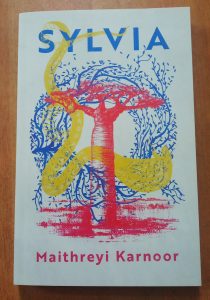
How do you balance your work and literary pursuits? Does your writing and translation work pay the bills?
I don’t know of many English writers in India who make a living from their writing (I cannot speak for commercial writing—fiction or otherwise—of course). I don’t. I barely make a living even. It helps that I have no dependents. Although I’d love to live off my writing someday, I don’t want to count on it. I recently quit a job teaching creative writing in a design college and am living on my obscenely meagre savings. But I have no regrets. I think it’s ironic to spend all of one’s time teaching writing and not be able to actually write. My only method with writing is to not have a method. It is an intuitive process, and teaching it—which is essentially talking about it—was exhausting. The only principle I go by is ‘read well to write well,’ and I was weary of having to constantly unpack that in the classroom.
Perhaps because I am a translator, language and its magic hold me in their sway. I love a good story. I love a well-written story even more. I can read and reread a beautifully written sentence until the cows come home—and inversely (to borrow from Groucho Marx) I can look at the cows until a beautifully written sentence comes home. I am rather old-school in my art-for-arts’ sake inclinations. While messaging and subverting and that sort of thing is important, I prefer it to not dominate the narrative. Humour, wordplay, satire, cleverness (that does not take away from the gravity of the situation), wry acceptance, honest self-deprecation—these things are important for me in what I read and what I write.
I am not a student of literature in the traditional sense. And I’m glad about it—I think an academic relationship with literature would have killed its joy for me. Now, every story, every poem I read is a new discovery unbound by theoretical frameworks.
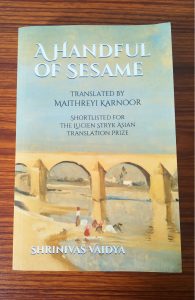
Who are the Kannada authors—past and present—that you like the most?
I admire Bendre’s poetry—there is so much more than mere meaning in them. I don’t want to go through the bother of acquiring permission from his rather elusive estate, which is why I don’t publish my translations of his works. But working with them gives me great joy. Vasudhendra’s works offer a different kind of challenge in translation—the complex plotlines he weaves into rich tapestries require care and attention to be rendered in all their beauty into English.
Linguistic nuance and difference from the mainstream interests me. I admire Shrinivas Vaidya’s work for that reason. Translating his novel felt as natural and joyful as chatting with my mother owing to his easy and quirky use of the north Karnataka Kannada (which I refuse to call a dialect). I have had the urge to write in Kannada for some time now but have lacked the courage for it. But I made a beginning recently and it is scary to say the least. Vaidya passed on around the same time and the coincidence of the events makes me wonder if he has handed me the baton of our language.
Given the rise in interest in translations studies in universities like JNU, Ashoka, Jadavpur—what can we do to promote marginalised writers and translators and their works in mainstream discussions? I’m asking this because it seems to me as if Indian writers who write in English and those who write in the languages exist in two parallel universes.
It’s heartening to see increased academic interest in translation. Mainstream publishing is also looking more keenly at translation than before—and that is definitely a good beginning in the endeavour to subvert some of the hegemony of language and what counts for the canon. But we have a long way to go before translated literature comes out of the ‘also-ran’ category and is taken seriously for itself. What we lack majorly are resources. Unlike in the west, literary translation in India is not a career option. Except for a handful of well-established ones, translators don’t get paid by wordage or a share in the royalties. One is lucky to be paid an honorarium. It remains something of an indulgence that one does for the love of language and literature and is, therefore, prohibitive as a sustainable activity. Also, while one may talk about inclusivity for dialects of the disempowered within the language of a state, there is a standardising endeavour in English however careful the translator may be in preserving difference. And all said and done, English remains an elitist enterprise in India—more so a literary sensibility in it. Translation is, after all, not a simple discipline. It is an art and a craft of language and is not free of its power trappings. This impasse—like everything else plaguing us—can only be addressed through education (access and quality) and greater social democracy.
How was your experience as a Charles Wallace India Trust Fellow in Creative Writing and Translation in 2022? Do you recommend it to emerging translators—what are the opportunities that they can look forward to?
The CWIT fellowship at Literature Across Frontiers (LAF), Wales, was a shot in the arm for my literary endeavours. It is one of the few places that recognise the close relationship between writing and translation and aim to nourish it by encouraging early-career writers who are also translators. After India where the paperwork for existence alone can fill entire libraries, I was pleasantly surprised by how refreshingly unbureaucratic University of Wales was. I was given the time and space to think, write, and translate at my own pace, and I was more prolific in those three months in Aberystwyth than I could have been in a whole year in India. I had an office in the Celtic studies building and it was lovely. I remember a lady I met in Lampeter making a friendly jibe at me for trying to be creative in what she thought was a dull room with no view. I couldn’t bring myself to tell her how coming from where I do, having a quiet place to myself—however lacking in view—and the freedom to use it as I pleased was a huge luxury. I completed the last part of my translation of Vasudhendra’s novel Tejo Tungabhadra there. I also finished the first draft of my short fiction collection of social satire Gooday Nagar. I am waiting for my agent Kanishka Gupta to find me a publisher for it. I also filled an entire notebook with poems, several of which were published in highly regarded British journals.
What are your thoughts on awards in the international translation world—has it affected the status of translators/translations in India in terms of finances and recognition or both? Do you believe this will mean that more books will be translated, or there will be more support for translations, even translation between Indian languages?
Awards, prizes, and grants acknowledging translation is certainly good news. But they aren’t nearly enough and it is a bit of a lottery. It is, ultimately, a competition in a highly subjective field. They are great as pats on the back but the work of those who don’t win must also be accounted for. The pressing need, therefore, is for translation to be recognised as work. Paid work. Ultimately, only time and longevity decides the quality of one’s writing.
What are you working on next?
I am currently working on my third book and second novel. I am writing it in Kannada which I will then translate to English. Although it is my first language, I have never written in Kannada before and it is a daunting—albeit fun—prospect. For me, wordplay and the clever and beautiful use of language are as important as the plot. The title of my forthcoming novel is a play on a famous, modern Kannada natak. I won’t reveal it just yet, but it came to me as a joke, and it is so idiosyncratic to Kannada that the novel also begged to be written in it. I will have to come up with a creative alternative for it in English as it is an ‘untranslatable pun’. I will have to take some liberties with it, but I have always had great relationships with the authors I have translated, and I fully intend to continue the trend with myself.
I am also working at publishing Skinny Dipping in Tiger Country, my poetry collection soon. The title poem was published in PN Review earlier this year. I have been biding my time to find the right publisher for it.
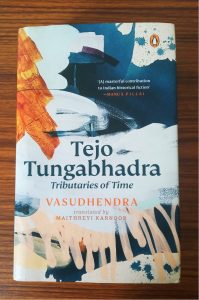
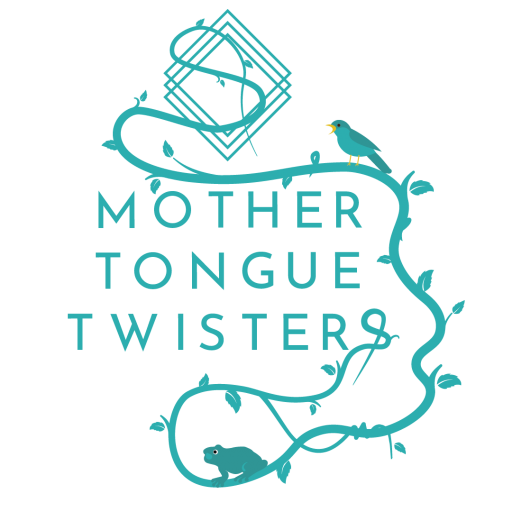

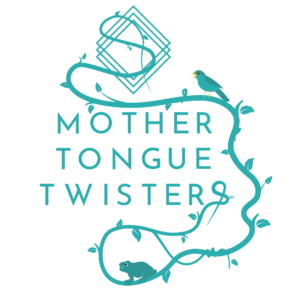
Beautiful and useful conversation. Thanks Neeta ji